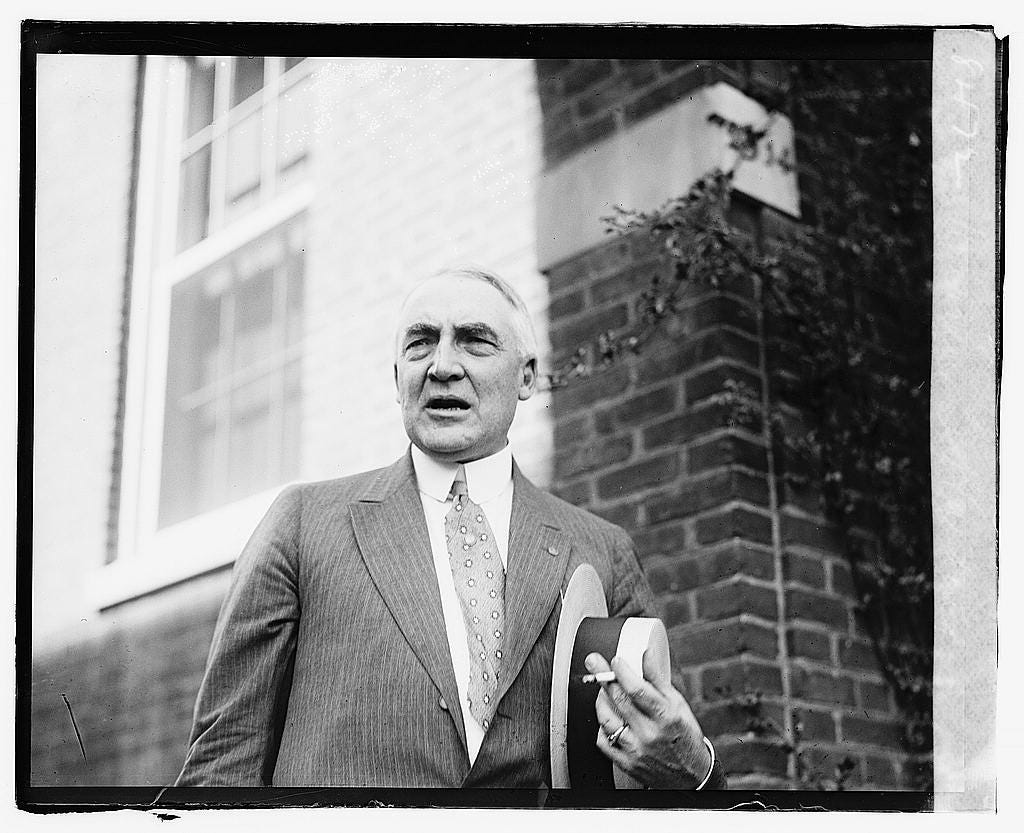Warren G. Harding took office as the 29th president of the United States on a campaign that offered Americans a “return to normalcy,” telling voters that he wanted to take the country back to a mentality that existed before the first World War. He (now somewhat famously) declared in Boston, Massachusetts:
“America’s present need is not heroics, but healing; not nostrums, but normalcy; not revolution, but restoration; not agitation, but adjustment; not surgery, but serenity; not the dramatic, but the dispassionate; not experiment, but equipoise; not submergence in internationality, but sustainment in triumphant nationality…” [Teaching American History archive]
Despite Harding’s ultimate failure to manifest this concept to completion, the notion of normalcy has continued to persist in the American political zeitgeist. The phrase Harding campaigned on would also be ascribed to President Joe Biden’s 2020 campaign. Electing Biden as president would give us a chance to go back to how things used to be, liberal pundits said, or at least how they were pre-Donald Trump.
Biden’s term is beginning to cement itself in American history and I’ve often found myself wondering whether a return is what a country rife with sicknesses of extremism, polarization, disinformation actually needs. Key turning points in the aforementioned struggles already feel years behind us. Voices of fact and reason have largely lost the ability to influence national attitudes and conversation; they have been replaced in many media diets with dreadful opinion-makers and polarizing outrage-enablers.
Is “going back” a good idea, or even possible in our modern world? The cynic in me thinks it’s not.
“Through, not back” is a phrase that’s been repeating in my head lately. The idea goes something like this: Instead of seeking a return to what we had just before whatever cultural or political or social crisis that any given person might believe triggered ultimate downfall, it’s more helpful to open our imaginations to what the future could look like on the other side of tragic modernity. We should suit up, play ball with the modern landscape’s least-odious features, and accept nothing less than a total victory.
The internet has forever changed the playing field in media, politics, and social dialogue. Even the earliest who caught on to this shift did so too late to prevent the rot and decay of our national information ecosystem (as if that were something a researcher or two could even do). A fix to these problems might require us to go through the difficulties we’re facing with a plan to emerge on top, rather than take an exclusively subtractive approach of removing negative forces that have ascended to influence. It’s important to understand that our most obvious problems exist in an sea that has been thoroughly polluted.
That’s to say that we cannot simply put the problem of disinformation and hyper-partisan media back in the bottle. But perhaps those of us interested in protecting the facts-based common understanding on which free and fair countries function can learn to make real life more compelling than lies and come up with ways to support infrastructure for truth-telling, which is expensive, against falsehoods, which cost almost nothing to think up and disseminate.
A fundamental issue with the dream of returning to “normal” is that the word means vastly different things for different people. Normal could be the Obama years, which I suspect it does for many modern political writers who came up in the last decade-or-so, and who now occupy lofty positions at national publication desks. For others, maybe normal was the 90s, the 80s, or earlier.
Nothing is ever “normal.” I think most of us mistakenly use the term in place of another one that feels less absolute: “familiar.” What we think is normal is what we have the most experience with, and there’s not much more to it than that. But what many of us know the best certainly isn’t the best we can attain. To seek return to normalcy as an end-game is to sacrifice one’s agency in achieving a future better than the past before it.
If we’re going to make it out of this mess and build resilience, we must learn to strike occasional jackpots in this hellish casino. Eliminating truly harmful material is part of that fight, but a long-term fix could be learning how to beat the house at its own game.
I don’t have a full idea of what might look like yet, but it’s something I’ve been thinking about.
Podcast episodes return in May, when I get back home to DC. Catch you then!
It feels like I only go backwards, baby
Every part of me says, "Go ahead"
I got my hopes up again, oh no, not again
Feels like we only go backwards, darling


